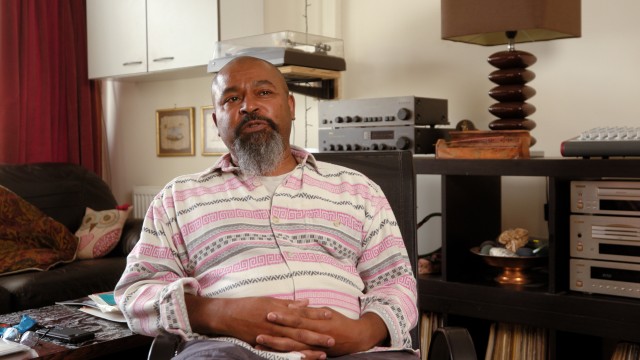Today’s documentary feature, on first blush, presents as a dry issue-doc. There are many documentaries that center on important local issues and highlight smart or worthy initiatives in a civic or sociological sense, but which hardly try and make a case for why anyone without a direct connection should care. Even the title sounds vaguely academic. Yet, Timi Akindele-Ajani’s film, Nubia Way: a story of black-led self building in Lewisham is able to transcend that stereotype by fascinating across the breadth of two axes: the film tells the stories of individuals engaging in personal, local action, but the political and symbolic dimension of their resistance to the racist status quo resonates on a macro, societal level. Similarly, the film is a history, reviving and re-centralizing a movement that time was threatening to forget, and yet the applicability of its example, the lessons, and the template that it could provide are no less relevant than they were at the time of the events over 25 years ago.
Nubia Way is an unassuming cul-de-sac in Dowham area of Lewisham, London. In the mid-90s a group of Black Londoners self-built thirteen timber frame houses, by hand, in order to secure housing for themselves in an environment that often excluded or made it difficult for people of color to access suitable housing. It was the second development built by the Fusions Jameen Cooperative, a housing co-op run by and for local African and Caribbean people looking for permanent accommodation. Via their ‘sweat equity’ these self-builders, with little experience or expertise, transformed an unused dirt track in the back of a housing estate into one of London’s most remarkable communities.
“Filmmaking is a powerful device to document and share lesser-known histories”
For the same reason that the Nubia Way builders found it necessary to self-build, Nubia Way failed to proliferate, and the remarkable achievement of what, at the time, had been “Europe’s largest Black-led self-build” fell into obscurity. The film’s creative producers, Rosie Gibbs-Stevenson, who commissioned films for The Architecture Foundation, and Rochelle Malcolm, an academic whose Ph.D. touched upon self-building, felt it was important to reclaim that legacy. In a statement to S/W they share that, “Filmmaking is a powerful device to document and share lesser-known histories. Thirty years on, Nubia Way’s lessons of resistance, creativity and community were known only to the handful of original self-builders. We felt it was imperative that the legacy of the Nubia Way was never forgotten, and their knowledge would be shared with a new generation.”
They approached the director, Timi Akindele-Ajani, who was enthused. “I found myself extremely compelled by the story of Nubia Way. As a Black Londoner, I was surprised I had never heard of Nubia Way, despite its massive significance not just in architectural history, but in wider Black British history.” Akindele-Ajani crafted the visual storytelling strategy of the film which largely centers on conventional, but stylish, interviews with contemporary residents of the Nubia Way, many of whom still have vivid memories of both the joy and satisfaction of the building period, but also of the travails, which included racist vandalism and violence. The production team did have one ace up its sleeve however as they describe, “we uncovered a treasure trove of archival material and ephemera that the residents had been keeping safe over the years. This included some film footage that had been recorded during the construction period that transformed how we brought the interviews we filmed in 2021 and footage of the houses filmed on a
Super 8 camera. We visually tied all of these elements together, the archival, the
contemporary and the Super 8 footage to create the end product.”

The current residents of Nubia Way present their story with warmth, charisma, pride, and dignity
However, cultivating an appealing look, or touting the historical importance of a subject ultimately falls flat without appealing characters and strong storytelling. The team does a good job in constructing that aspect shaping the arc of a narrative to conform to good storytelling principles, but much of it comes down to the residents themselves, who present their story with warmth, charisma, pride, and dignity, and provide a living example to what is possible.
“We hope that if viewers take away one message from the film, it will be to hold onto and celebrate the power of community-led action. Hopefully, this film will be a starting point for a richer understanding of the British black communities’ legacy of self-organizing, self-determination, and self-building. Disparities in property ownership are still prevalent in the U.K.; Nubia Way and the principles of self-build housing is an example of how alternative housing solutions can work, despite the odds.”

 Jason Sondhi
Jason Sondhi